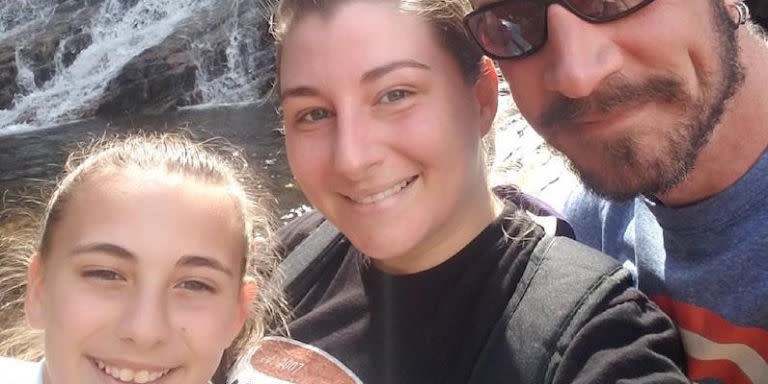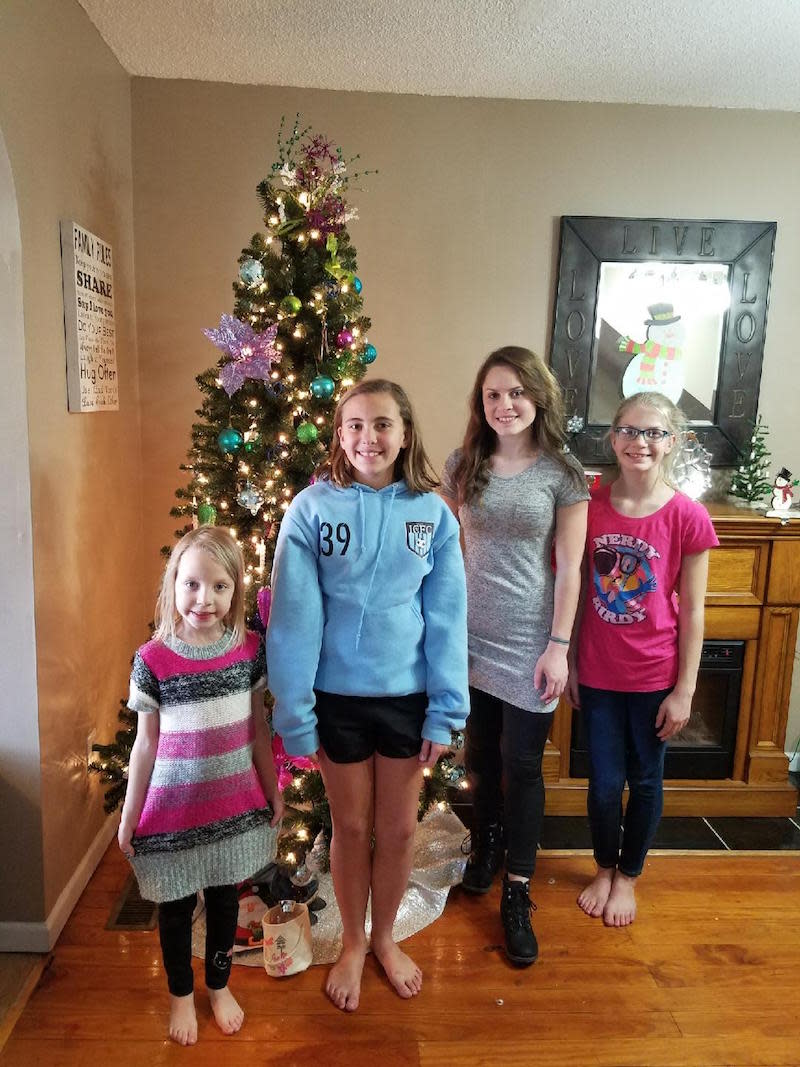"I Ain't Raising No Princesses" — And You Shouldn't Be, Either

Earlier this week, I, a dad of five girls, wrote a Facebook post in response to all those dumb "Rules for Dating My Daughter" that end up on t-shirts in souvenir shops (you know the ones: "Get a lawyer"; "She's my princess, not your conquest"). It kind of blew up. And so far, the response has been overwhelmingly positive. It seems like most people agree with me, which has actually renewed a bit of hope in me about the direction people's beliefs are heading.
I've been sharing my writing online for a couple of years now and frequently write about feminism. I've received a great deal of backlash for it. I've come to expect the usual responses from trolls, who regularly call me "cuck" or "fag." But other times, I get pushback from guys whose hearts probably are in the right place. These men don't necessarily have archaic misogynistic beliefs, yet they're still reluctant to call themselves feminists out of a fear that, I dunno, there might be some sort of castration ritual involved. To them, "feminism" implies an anti-male world view or an agenda that emasculates men in some way. To me, feminism just means empowering my daughters to be whatever kind of women they want to be.
I was raised in a very conservative Christian home and was homeschooled for religious reasons. I heard a lot about how wives were expected to be submissive, and saw my mother, and countless other amazing women, just accept as fact that their views were subordinate. Even at a young age, something about that mindset didn't sit well with me. I wanted to share my life with an equal - and have someone to call me on my B.S. (My wife Natasha doesn't hesitate to do just that.)
I have three daughters (Jade, 16, Darcy, 12, and Laney, 7) with my ex-wife Melissa (a strong woman and amazing role model in her own right), and two step-daughters (Ashton, 16, and Carmen, 12). Once I became a dad, my feminism started to feel a lot more urgent. I knew that I had a healthy view of women and treated them appropriately, but I wasn't nearly as outspoken about those issues as I have become now that I am a father of daughters.

I don't want my girls to grow up to be the kind of women who think they need a man, or a man's stamp of approval, to lead fulfilling lives or make important decisions for themselves. That starts with making sure they know I'm available to talk about whatever it is they want to discuss: religion, politics, you name it. I share my opinions, but I'm not judgmental of theirs. They know we can discuss any issue, and that I won't get my little dad feelings hurt if they don't agree.
I don't feel like I have the right to paint a picture in my head of what their lives should look like. I just desperately want them to be happy, and I know how elusive that feeling of happiness can be - and that it becomes even harder to find when you're trying to live up to someone else's idea of how you should act.
It isn't always easy. Jade and I don't see eye-to-eye on a lot of issues - she wants to be a missionary. (I'd rather she, and all my girls, become CEOs.) But being a feminist means I support her - even if we disagree, even if her vision for her life doesn't look like my idea of female empowerment. Wouldn't it be the very definition of misogyny if I were to try to force a specific kind of feminism down her throat?
Happiness doesn't look the same for any of us. Not for men, and not for women either. Whatever happiness means for my girls, I support it. That's what being a feminist means to me.
Follow Redbook on Facebook.
You Might Also Like

